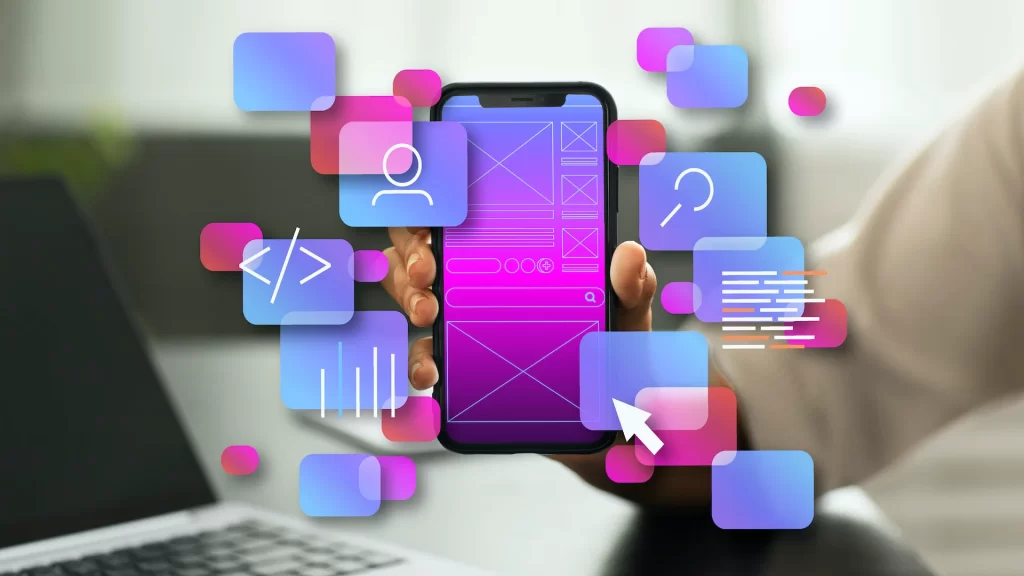As technology continues to evolve at a breakneck pace, mobile applications remain at the forefront of innovation. The apps we use daily—from communication tools to e-commerce platforms—are becoming more intelligent, efficient, and transformative. Looking ahead to 2025, several emerging trends promise to redefine how apps are developed, experienced, and integrated into our lives. Let’s explore the top 10 app technology trends that are shaping the future.
What is App Technology?
1. Artificial Intelligence and Machine Learning Integration
AI and ML are not new to app development, but their applications are becoming more advanced and accessible. By 2025, AI will enable:
- Predictive analytics for better user personalization.
- Real-time translations for global communication.
- Enhanced user experiences through AI-driven chatbots and virtual assistants.
For example, health apps will leverage AI to predict potential health issues based on user data, while e-commerce apps will provide highly tailored shopping recommendations.
2. 5G-Driven App Experiences
The rollout of 5G networks is revolutionizing mobile connectivity, offering:
- Lightning-fast speeds for smoother streaming and gaming.
- Lower latency, enabling real-time interactions in AR/VR applications.
- Greater capacity for IoT integration.
By 2025, app developers will harness 5G to create immersive experiences, such as multiplayer AR games or instant cloud-based file editing.
3. Augmented Reality (AR) and Virtual Reality (VR)
AR and VR are reshaping entertainment, education, and retail sectors. In 2025, expect:
- AR apps for virtual try-ons in fashion and interior design.
- VR apps for immersive learning experiences in fields like medicine and engineering.
- AR-enabled navigation apps that overlay directions in real-world environments.
As devices become more AR/VR-friendly, these technologies will become integral to app functionality.
4. Super Apps Ecosystem
The concept of a “super app” originated in Asia with platforms like WeChat, and this trend is gaining traction globally. Super apps combine multiple functionalities, such as messaging, payments, and shopping, within a single interface. By 2025, businesses will focus on:
- Creating all-in-one platforms for convenience.
- Encouraging ecosystem lock-in by offering varied services.
- Leveraging AI to integrate seamless user interactions across services.
5. Blockchain-Powered Apps
Blockchain technology is moving beyond cryptocurrency into mainstream app development. In 2025, we’ll see:
- Decentralized apps (dApps) that enhance security and transparency.
- Blockchain for secure identity management and digital contracts.
- Greater adoption of blockchain in finance apps for fraud prevention.
These advancements will appeal to users who prioritize privacy and data security.
6. No-Code and Low-Code Platforms
The demand for faster app development cycles is driving the adoption of no-code and low-code platforms. By 2025, these tools will:
- Enable businesses to develop apps without extensive technical knowledge.
- Foster innovation by empowering non-developers.
- Reduce development time and costs.
This democratization of app creation will allow startups and small businesses to compete with larger players.
7. Wearable Technology Integration
Wearable devices like smartwatches and fitness trackers are becoming more sophisticated. In 2025, apps will:
- Seamlessly integrate with wearables for real-time health monitoring.
- Leverage data to provide customized fitness and wellness insights.
- Expand functionalities to support AR glasses and other new wearables.
These integrations will make apps more relevant in healthcare, fitness, and lifestyle industries.
8. Progressive Web Apps (PWAs)
PWAs bridge the gap between mobile apps and websites, offering:
- Fast load times and offline capabilities.
- Responsive designs that work on any device.
- Cost-effective development compared to native apps.
By 2025, PWAs will dominate industries like e-commerce and news due to their ability to deliver app-like experiences without requiring downloads.
9. Sustainability in App Development
With growing environmental awareness, sustainable app development is becoming a priority. By 2025, developers will:
- Optimize apps to reduce energy consumption.
- Embrace eco-friendly cloud storage solutions.
- Focus on ethical coding practices to minimize carbon footprints.
This trend will align app development with global sustainability goals, appealing to environmentally conscious users.
10. Enhanced Cybersecurity Features
As cyber threats evolve, app developers are focusing on robust security measures. In 2025, we’ll see:
- Biometric authentication, such as fingerprint and facial recognition.
- End-to-end encryption for data protection.
- AI-driven threat detection systems to prevent cyberattacks.
Enhanced cybersecurity will be critical for apps handling sensitive user data, such as financial and healthcare platforms.
Conclusion
The future of app technology in 2025 is a blend of innovation, accessibility, and sustainability. From AI-driven personalization to blockchain security and 5G-powered experiences, these trends will transform how we interact with mobile applications. Businesses and developers who stay ahead of these trends will have a competitive edge, delivering cutting-edge solutions to meet evolving user expectations.
As we move forward, the question isn’t just how apps will change, but how they will change us. The future is indeed here—are you ready to embrace it?






